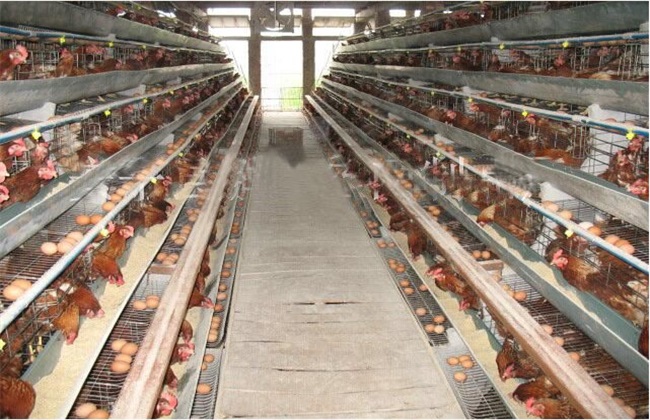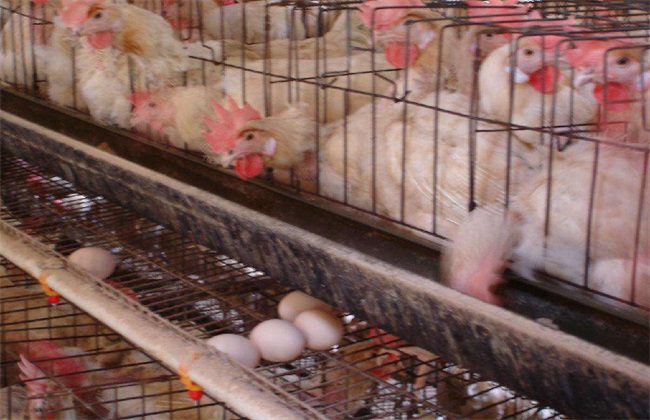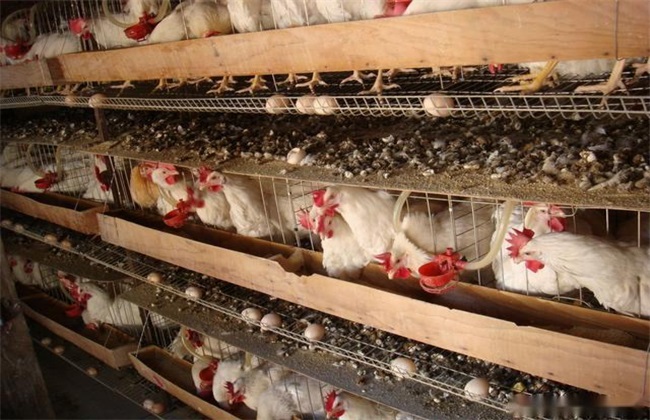What's wrong with laying hens?
Laying hen feed is a general technical term in the chicken industry. Passing the material does not represent a particular disease, but it can occur in many diseases. The overfeeding is mainly due to the abnormal digestion and absorption of nutrients in the feed, which has a great effect on the growth of laying hens. Although there are more causes of the disease, but the clinical manifestations are only out of date. So what happened to the laying hens? Let's take a look at it with the editor.

1. Causes of nutritional diseases
The overfeeding of layers may be caused by nutritional diseases in the first place. Laying hens will appear orange feces, which is extremely difficult to shape. After the onset of the disease, the chickens had decreased appetite, poor coloring, low feed utilization rate, light weight and poor overall evenness of the flock. If the diseased chicken is dissected, it can be found that the glandular stomach and muscular stomach are damaged. At present, there is no definite pathogenic factor, but most people believe that some unknown toxin in the feed or poor feed quality is the cause. For example, nutritional diseases such as lack of vitamin A can lead to damage to the crop and esophagus of laying hens, which leads to overfeeding.
2. Infectious diseases
In addition to nutritional diseases, many infectious diseases that can damage the intestines of laying hens can also easily lead to overfeeding in laying hens. For example, common bird flu, Newcastle disease and so on. Most of these diseases will cause local bleeding or necrosis in laying hens, and in severe cases lead to necrosis. And most infectious diseases can cause short-term diarrhea or overfeeding in laying hens. Therefore, when raising laying hens, we must pay more attention to do a good job of vaccine prevention in strict accordance with epidemic prevention procedures, reduce the incidence of infectious diseases and avoid overfeeding.
3. Heat stress
Heat stress is also a major cause of overfeeding of laying hens. After the layers produce heat stress, the amount of water they drink will be greatly increased. With the increase of moisture, when laying hens defecate, it will cause the feces to be too wet and difficult to form. If it is not treated in time after two days of heat stress, the intestinal epithelium of the chicken will gradually become abnormal and the structure will be changed gradually. And now this will last at least three days or so, and there has been a professional investigation. The surface area of intestinal villi and intestinal epithelium of laying hens exposed to heat stress will be affected and decreased.
4. Too much salt in the diet
There is a limit to the daily salt intake of laying hens. On the other hand, the salt in the diet will increase due to the increase of drinking water, resulting in too much water in the feces. Naturally, feces will also appear wet, unable to form and other phenomena. The main reason for the excessive salt intake of laying hens is that the diets are confusing or do not take into account the salt content in some feeds, such as commonly used fish meal. Or it may be due to the excessive salt intake of laying hens due to a series of reasons such as the salt in drinking water.
The above is a brief introduction to what is going on in laying hens. That's all for today's introduction. This article is for reference only. I hope it can help you all.
Related
- On the eggshell is a badge full of pride. British Poultry Egg Market and Consumer observation
- British study: 72% of Britons are willing to buy native eggs raised by insects
- Guidelines for friendly egg production revised the increase of space in chicken sheds can not be forced to change feathers and lay eggs.
- Risk of delay in customs clearance Australia suspends lobster exports to China
- Pig semen-the Vector of virus Transmission (4)
- Pig semen-the Vector of virus Transmission (3)
- Five common causes of difficult control of classical swine fever in clinic and their countermeasures
- Foot-and-mouth disease is the most effective way to prevent it!
- PED is the number one killer of piglets and has to be guarded against in autumn and winter.
- What is "yellow fat pig"? Have you ever heard the pig collector talk about "yellow fat pig"?



